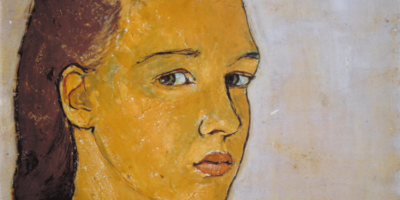New and Noteworthy
THE CHALLENGE OF FEMINIST BIOGRAPHY
edited by Sara Alpern, Joyce Antler, Elisabeth Israels Perry, and Ingrid Winther Scobie (University of Illinois Press, 1992) $44.95; p.b. $14.95
This collection of essays by some of the brightest stars in feminist scholarship is intended as “a workshop in print to inform and encourage those interested in the writing and reading of biography and especially in the biographical construction of modern women’s lives.” Scholars discuss the process of writing biographies of women subjects, among them Florence Kelley, Emma Goldman, Belle Moskowitz.
SEX & SENSIBILITY: REFLECTIONS ON FORBIDDEN MIRRORS AND THE WILL TO CENSOR
by Marcia Pally (The Ecco Press, Hopewell, NJ, 1994) p.b. $11.00
Do erotic and violent images in the media cause violence or sexism in real life? No, writes Marcia Pally. Rather “the idea that what happens in fantasy happens in life is neither science nor feminism—but voodoo.” The author, a founder of Feminists for Free Expression, an organization argues that the solution to bad speech is more (good) speech, not the forbidding of speech. An intelligent contribution to our often emotional debates on the topics of book banning, protecting minors from pornography, responding to hate speech on college campuses, alleviating sexual harassment in the workplace, etc.
WORLDS OF JEWISH PRAYER: A FESTSCHRIFT IN HONOR OF RABBI ZALMAN M. SCHACHTER-SHALOMI
edited by Shohama Harris Wiener and Jonathan Omer-Man (Jason Aronson, Northvale, NJ, 1993) $35.00
In dialogue with God, or in search of such a dialogue, 47 rabbis, teachers, and scholars —one third of them women—share their understandings of prayer. This book, dedicated to Schachter-Shalomi, a teacher who is both steeped in the mystical traditions of East European hasidism as well as in spiritual post-modernity, presents inspiring and varied essays to return to time and again.
LIFECYCLES
by Rabbi Debra Orenstein (Jewish Lights Publishing, 1994) $24.95
A strength of this anthology, part one of a proposed trilogy, is its scope. Orenstein has collected here a full sampling of lifecycle events of women—those personal markers for which we have had almost no appropriate liturgies or prayers or rites: loss of a pregnancy or a spouse; the termination of a marriage or of menses; conception, childbirth, weaning and more. These are lifecycle rituals created by women, or adapted by them, out of Jewish sources, and one of the pleasure of this volume is the diversity of voices, lifestyles, ages and backgrounds these worthy informants represent. The effect is choral, and most welcome.
TO PAINT HER LIFE: CHARLOHE SALOMON IN THE NAZI ERA
by Mary Lowenthal Felstiner (HarperCollins, 1994) $27.50
Charlotte Salomon, whose self-portrait appears on LILITH’s cover, painted the autobiography of a middle-class German Jewish artist in the years before—and during—the Holocaust. She was murdered by the Nazis in 1943, at 26, and her artistic legacy, left in a manuscript called Life or Theater?, forms the basis of this book.
Salomon’s artistry, using overlays of tissue, which enrich the tale and hold the narrators commentary is paralleled by her biographer’s layered and complex and thoroughly wonderful recreation of a personal and social history created out of Salomon’s text, careful historical research and extraordinary interviews with surviving family members, friends and classmates. One example of this biographer’s art? Felstiner looks closely at the fractured glossy surface of the lives led by all middleclass Jewish women in Weimar—whose suicide rate, Felstiner discovers, was many times that of the general population! She suggests that because they were the best educated females of their time and place, and because bourgeois codes dictated that they stay put at home, their frustration and emptiness drove them to kill themselves even in the decades before Hitler decided that they should die.
WOMEN IN PRAISE OF THE SACRED: 43 CENTURIES OF SPIRITUAL POETRY BY WOMEN
edited by Jane Hirshfield [HarperCollins Publishers, 1994; $22,50]
An anthology of spiritual poems, prayers, and songs from the pens (cuneiform tools, Zen brushes, pokeberry ink quills) of 70 women. Contributors range from the world’s earliest identified author (a Sumerian moon priestess, 2300 B.C.E.), through the 7th century B. C. E. Sappho, the 11th century Izumi Shikibu, the 16th century Teresa of Avila, Emily Dickinson, an anonymous Osage woman, and the 20th century Gabriela Mistral. In the “Jewish women” corner, there are three entrants: Nelly Sachs, Kadya Molodowsky, and the lusty female author (known only as “the shulammite”) of the Song of Songs. Painstaking, intelligent, a little on the over controlled side (for those whose spirituality leans more towards high mischief), these collective verses comprise an important and remedial siddur.
GENDER AND TEXT IN MODERN HEBREW AND YIDDISH LITERATURE
edited by Naomi B. Sokoloff, Anne Lapidus Lerner, and Anita Norich [The Jewish Theological Seminary of America, 1993; $35].
Nine essays, by scholars of Yiddish and/or Hebrew literature, apply feminist thinking to specific Jewish texts. Contributors include Kathryn Hellerstein, Janet Hadda, llana Pardes and Anne Golomb Hoffman. Essays range from “Female Adolescence and the Holocaust in the Fiction of Ahron Appelfeld,” through “The Influence of Decadence on Bialik’s Concept of Femininity,” “Why Was There No Women’s Poetry in Hebrew Before 1920?,” “A Journey from T to ‘Self in Yiddish Poems by Women”; and lit. crit. on the poets Esther Raab and Yocheved Bat Miriam. Three additional personal essays (by the Yiddish novelist Chava Rosenfarb and the Hebrew novelists Ruth Almog and Amalia Kahana-Carmon) are honest, tough minded and moving. The book includes rich bibliographies. A must-have for any serious Jew who calls herself a woman.


